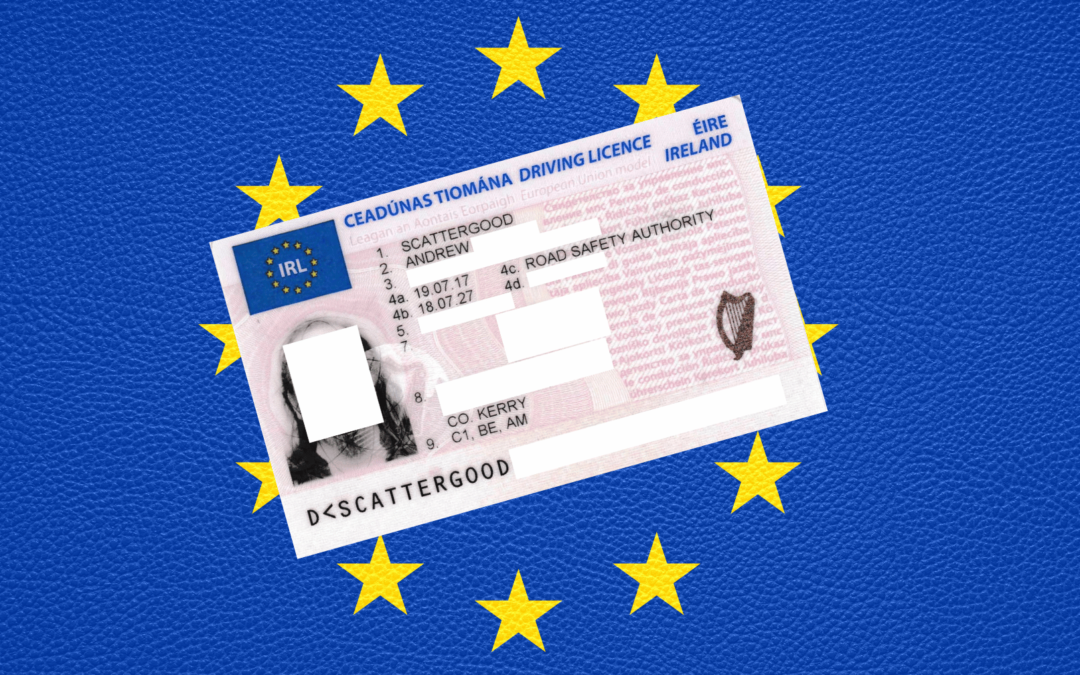There is often confusion about the difference between being a citizen of a country and being a resident. Both bring important and different rights and implications for an individual. Let’s look at the differences.
The basic differences are the same around the world, but I’ll be giving you examples about Spain because that’s where I am a resident and also Ireland and the UK, because I’m a citizen of both and my wife is a UK citizen.
I’ll also tell you briefly how to become a resident or a citizen, and how your citizenship makes a difference when you’re moving to a different country.
First of all, living in a country doesn’t make you a citizen of that country, but having a passport for that country shows that you are a citizen. You can only get a passport by proving you are a citizen.
So how do you get a passport?
There are three ways to be a citizen and get that passport
1/ The first way is to be born there, so if you can arrange that, you’re in!
2/ The second way is to have a parent who was born there, or sometimes a grandparent.
3/ The third way is to have lived in a country for long enough to apply for what’s called naturalisation.

Different rules
Now this is where there can be differences around the world, because different countries have slightly different rules about, for example
• how long you need to have lived there to begin applying
• what evidence you need
• how much you know about the country’s history and your obligations as a citizen
• whether you can speak the language
• how much you’ve integrated into the community
In Ireland
To apply for naturalisation you need to have lived there for 5 out of the last 6 years, and in the final year of that period, you must have remained there every day and be able to prove that.
In Spain
The period of residence is 10 years, and one of the two citizenship tests you have to go through is being able to answer questions in Spanish and have a fluent conversation with an examiner to a reasonably high level – although you can bypass this test if you can prove you studied Spanish to A2 level or above.

Latin America
Now, Spain is one of those countries that has colonised lots of other countries in the past, so in recognition of the heritage of their old colonies, they recently made a law that says if you’re a citizen of a Latin American country for example and you have a Spanish parent, you and your descendants are automatically entitled to Spanish citizenship.
Even if you don’t have a Spanish parent, you only have to have lived for two years in Spain before you can apply, instead of ten. And of course, you already speak Spanish, which is a big help – unless you’re from Brazil, where they speak Portuguese, but you’re still entitled to apply after 2 years.
So that’s citizenship. One more thing, as I said before I’m an Irish citizen, but I still hold UK citizenship, which I can do because the UK and Ireland have an agreement that people can have dual citizenship. Spain on the other hand prefers that if you become Spanish, you relinquish your citizenship everywhere else.
Residency
So what about residency? What does that mean? And how is it affected by your citizenship?
Well, I’m now an official resident of Spain, because I’ve gone through the process of applying for residency here.
My wife has also gone through the process of applying for residency, but her process was a little bit different from mine because she’s a UK citizen who’s married to an EU citizen. If she wasn’t, then her process would have been more difficult, because since Brexit she’s classed as a third country national (‘national’ in this sense being basically another word for citizen), and third-country nationals face greater financial requirements and criminal records checks and medical certificates and healthcare insurance than EU citizens.
Temporary & Permanent Residency
For the first 5 years of living here, she’s classed as a temporary resident, after which she can apply for permanent residency. Once she is granted that, she has almost the same rights as a Spanish citizen when she’s in Spain. Almost!

Different Rights
Note that above I said ‘when she’s in Spain’. Just because my wife is a permanent resident of an EU country, it doesn’t necessarily mean that she has the same freedom of movement across the EU as a Spanish citizen or a citizen of any other EU country. So if she wasn’t married to an EU citizen she couldn’t just move to Italy or France for example and get a job there. Whereas I can, because of my EU citizenship.
That’s the biggest distinction between citizenship of an EU country and residency of one. It’s all about the rights you have across the EU.
Rights through marriage (or civil partnership)
Having said that, because she’s married to an EU citizen, my wife does have some more rights than if she wasn’t. If she’s travelling with me, for example, she has freedom of movement around the Schengen Area, which is a big group of European countries. If she wasn’t the spouse of an EU citizen, she would be limited to 90 days out of the last 180 days, which is the so-called 90/180 rule.
Is it that simple?
As always with Spanish law and EU law, it’s never quite as simple and straightforward and black and white as I’m able to say in a very short and concise article like this. For example, there are different voting rights between the two. In Ireland residents and citizens can all vote in general, local and EU elections, but only citizens can vote in a referendum.
Other complications arise through misinterpretations of the law. On Facebook today, a UK National who’s a permanent resident of France was told by their local Spanish embassy in France that they can move to Spain without a visa because of their residency status, which is against what it says on official guidelines. It seems that confusion is not limited to Facebook. Watch this space for an update.












0 Comments